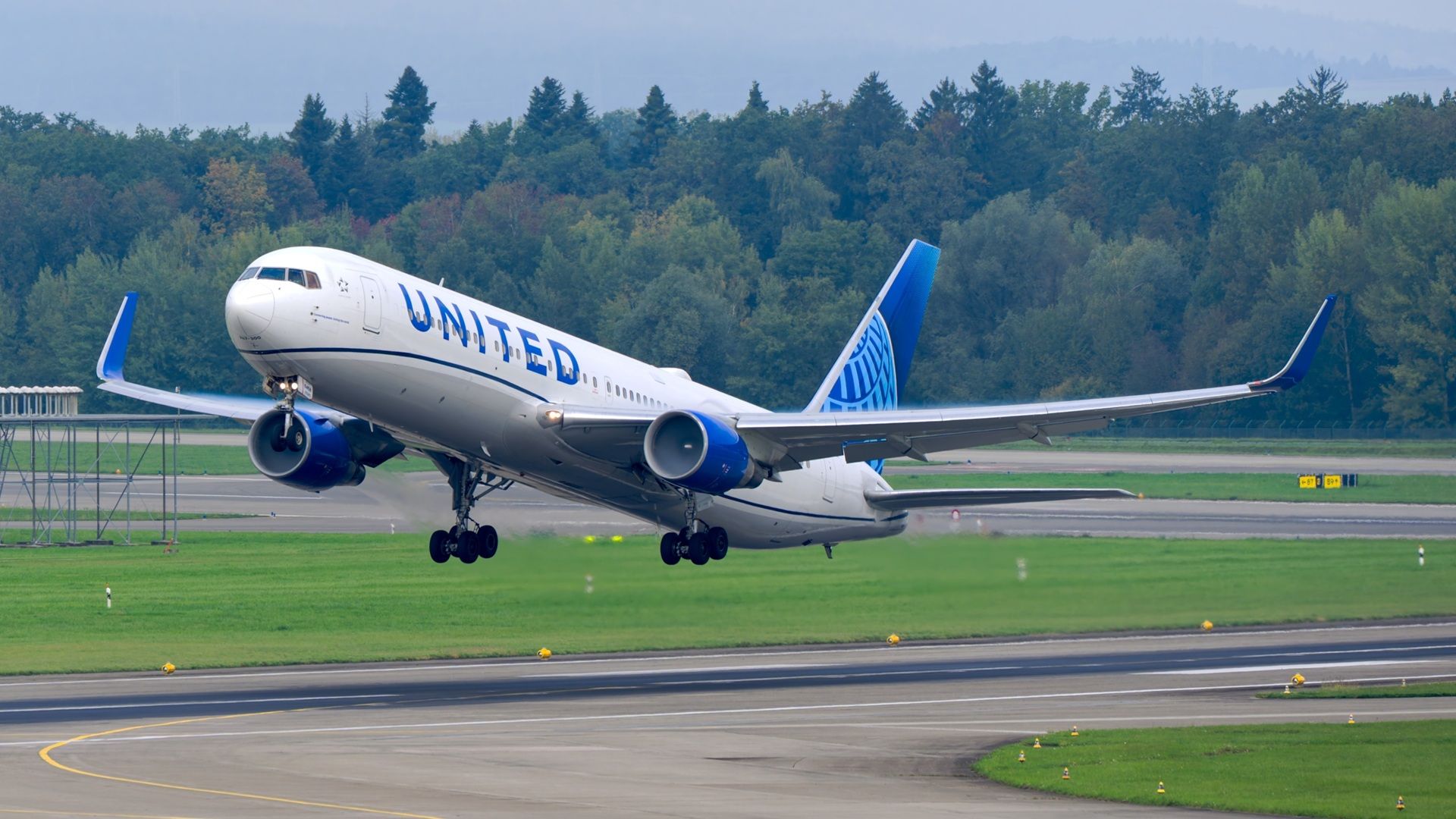A United Airlines flight from Washington Dulles International Airport (IAD) to Rome Fiumicino Airport (FCO) returned unexpectedly to Washington on October 15, 2025, after a passenger’s laptop fell from the cabin into the cargo hold. The incident raised safety concerns due to the laptop’s lithium-ion battery, which poses a risk if left unattended in the aircraft’s cargo area.
Flight UA126, operated by a Boeing 767-400ER, experienced the unusual situation less than an hour into its flight. According to data from Flightradar24, the aircraft executed a U-turn off the coast of Boston, heading back to IAD. Air Traffic Control (ATC) recordings revealed that the laptop had slipped down a sidewall and into a location inaccessible to the crew.
The crew noted that the laptop was switched on at the time it fell, which meant it could have had several hours of battery life remaining. One of the pilots communicated with ATC, stating, “A passenger on the airplane had a laptop that they dropped somewhere, and it’s now missing somewhere inside the airplane, and we need to recover it before we can go across the pond.”
Delayed Arrival and Safety Protocols
The flight landed back at Washington at 00:35 local time, more than two hours after its departure. After locating the laptop, the aircraft was refueled and prepared for a replacement flight, which took off at 03:25 and finally arrived in Rome at 17:26, resulting in a delay of over five hours.
ATC acknowledged the rarity of such an incident, stating they had “never heard anything like that before.” This event is part of a broader trend where passenger items have caused diversions. A similar incident occurred last summer when a United 767 flying from Zurich to Chicago diverted to Shannon, Ireland, due to a laptop wedged in a seat.
Lithium-ion batteries, commonly found in devices like laptops and smartphones, can ignite if damaged or overheated. The increase in incidents involving these batteries has prompted the aviation industry to implement stricter safety protocols, including a ban on storing lithium batteries in checked luggage.
Data from the Federal Aviation Administration (FAA) indicates a rise in lithium battery incidents, with over 50 recorded in the United States this year. Despite the potential risks, the pilots of Flight UA126 opted not to declare an emergency, emphasizing their decision to return was made with caution.
Ongoing Concerns About Lithium-Ion Batteries
Lithium-ion batteries have previously caused numerous aviation emergencies. Earlier this month, an Air China flight faced a crisis when a battery ignited in a passenger’s bag stored in the overhead compartment. Fortunately, the cabin crew managed to contain the fire, allowing the aircraft to land safely with no injuries.
As incidents involving lithium-ion batteries continue to rise, the aviation industry is increasingly prioritizing passenger safety. The decision by the United Airlines crew to turn back demonstrates the importance of vigilance when it comes to potential hazards on board. In an environment where safety is paramount, such actions are critical to ensuring the well-being of all passengers and crew.






